There are probably as many “pricing strategies for performers” as there are performers, right?
Ultimately, what we charge for a gig has everything to do with our own personal needs and goals, the market(s) we work in, and a whole bunch of other factors.
(Rather watch/listen to this article? Just click the video link below.)
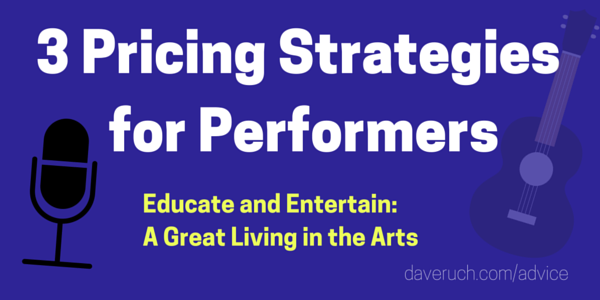 Today’s Educate and Entertain post is going to assume that you have some flexibility in setting your own rates (I’m almost sure that you do), and we’ll take a look at three ways to go about doing that.
Today’s Educate and Entertain post is going to assume that you have some flexibility in setting your own rates (I’m almost sure that you do), and we’ll take a look at three ways to go about doing that.
How Much To Charge For A Gig
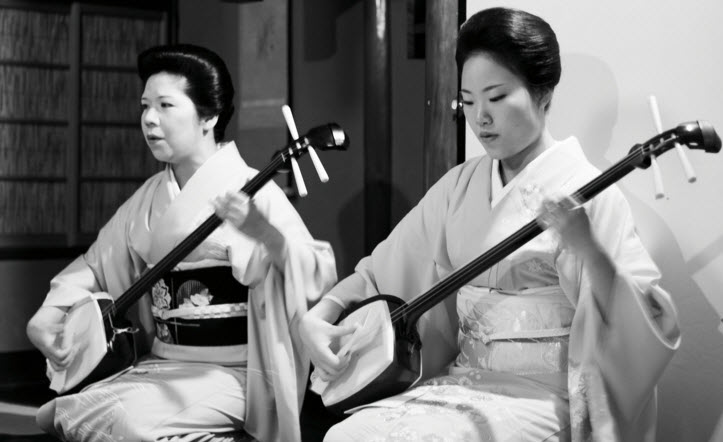 #1. Take What You Can Get (Minus The Paranoia Factor)
#1. Take What You Can Get (Minus The Paranoia Factor)
This is the place where most of us start. I know I certainly did.
In fact, I spent years smelling the flowers and kicking the tires here until, ultimately, my responsibilities (read: kids, wife, house, mortgage) outgrew my ability to continue working at the “going” rate for local musicians.
This pricing method generally goes one of two ways:
SCENARIO A: WHEN THE VENUE TELLS YOU WHAT THEY PAY
Step 1 – think back on what you’ve been paid for gigs in the past
Step 2 – take a guess what similar acts are being paid for similar gigs
Step 3 – consider what you are being offered
Step 4 – say “OK”
 SCENARIO B: WHEN THE VENUE ASKS YOU WHAT YOU CHARGE
SCENARIO B: WHEN THE VENUE ASKS YOU WHAT YOU CHARGE
Step 1 – think back on what you’ve been paid for gigs in the past
Step 2 – take a guess what similar acts are being paid for similar gigs
Step 3 – dream about asking for what you actually deserve
Step 4 – experience the paranoia factor™
Step 5 – quote a price that’s not much better than Scenario A, or perhaps even worse!
(The paranoia factor™ refers to that moment of trepidation just before stating your price when you become petrified of quoting too high and losing the gig.)
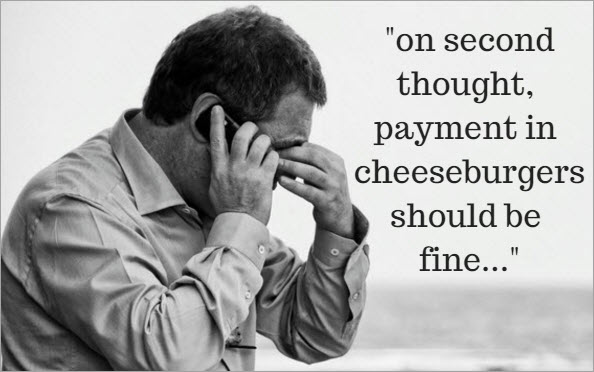 For performers with streamlined needs or other sources of income, the “Take What You Can Get” pricing scenario can work just fine.
For performers with streamlined needs or other sources of income, the “Take What You Can Get” pricing scenario can work just fine.
For others, it’s good to move out of this category ASAP.
#2. Starting From What You Need
Holy paradigm shift!
What if, instead of taking what you can get, you start with a number, on paper, representing what you need to be making per week or per month, and figure out your rates from there?
Would this change the way you do things?
Would it force you into some different areas of work that pay better?
 It certainly did for me.
It certainly did for me.
Once I realized that I needed to be making mid three-figures to low four-figures each day I travel and perform, my entire approach changed.
It became very clear to me that I couldn’t afford to be giving guitar lessons anymore at $30 a pop, I couldn’t be spending three to five hours at a coffeehouse gig, and I needed to shift all (or most of ) my work into the areas where I can make much better money.
For me, that meant schools, libraries, grant-funded concerts, community gigs, artist residencies, workshops, and other opportunities I’ve discovered simply because I had to.
An Interesting Side Benefit
Naturally, this approach to pricing my programs has spilled over to the occasional gig I get asked to do from back when I was in the “Take What You Can Get” category.
The great thing is, although I still like doing many of those gigs, I don’t need to do them now.
So, if it’s something that sounds like fun, and I’m not already working 60 hours that week, then I’ll just do it. It’s certainly not always about the money.
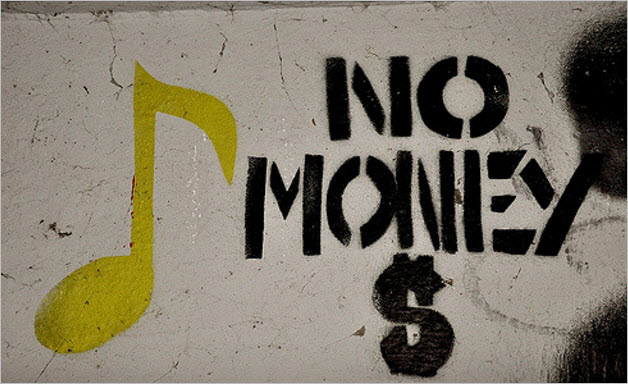 But if it’s one of those gigs that I could take or leave, then I’ll quote my (now) regular prices – the same fees I ask for in my other, more specialized work.
But if it’s one of those gigs that I could take or leave, then I’ll quote my (now) regular prices – the same fees I ask for in my other, more specialized work.
And usually, I don’t get the gig. That’s OK.
But! It seems like somewhere around 25-30%* of the time (*a non-scientific number), I get hired!
Yes, my quote is a lot higher than some others they may have gotten, but I get the gig anyways.
Why?
I can’t really say for sure, but I have a few theories:
- perceived value – they figure I must be worth it (and I better be able to deliver on that expectation)
- they had the money and nobody else asked for it
- perhaps a decent reputation built up over time for delivering value
Whatever the case, I think this is pretty interesting, and could really inform us all during our paranoid price-quoting moments.
As David Roth said in his pricing article for The Bash, “you will only ever get what you think you are worth.”
 There are several articles on this blog that go into more detail on the “Starting From What You Need” approach, including Do You Work Too Cheap?, What Do You Do When You’re NOT Performing?, and this one on positioning yourself as exceptional rather than cheap.
There are several articles on this blog that go into more detail on the “Starting From What You Need” approach, including Do You Work Too Cheap?, What Do You Do When You’re NOT Performing?, and this one on positioning yourself as exceptional rather than cheap.
#3. “The Decent Buck” (aka The Uber-Rational Approach)
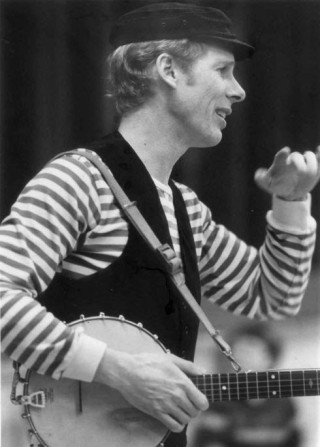 My friend and colleague Chris Holder has been an independent performing artist for over 35 years.
My friend and colleague Chris Holder has been an independent performing artist for over 35 years.
Once upon a time, Chris was writing a newsletter for fellow teaching artists called “Artists With Class” with his colleague Michael Rutherford.
The publication, now sadly out of print, was filled with useful articles on grant funding, showcase opportunities, marketing, and general logistics related to gigging in schools.
Chris told me recently that, by far, the most copied, shared, mimeographed (it was 1993), and reprinted article they wrote was called “The Decent Buck.”
With his blessing, I’m summarizing one part of it here.

This is smart food-for-thought in terms of making sure we’re charging enough for our work, and sobering for those of us who don’t normally take all of these elements into account. (I know I don’t!)
Chris Holder’s Pricing Formula
- What do you want your gross income to be for the year?

Chris Holder
- Add a third more on to that for expenses
- Add in your health and disability insurance along with some sick and vacation days
- Add in the amount you’d like to contribute to your IRA or other retirement plan
- Add 5% of the number you started with for “profit to be reinvested in your business/art”
- Add in 20% or so for Federal and State Income Taxes
- Now, divide your figure – which might now be almost double what you started with – by the number of days you’d like to (or can) work in a year, remembering to set aside plenty of “non earning” office days to keep this all going
That’s how much you need to be making each day you perform.
Thanks Chris!
Wrapping Up
So Many More Ways to Slice It…
I hope this has given you some valuable new ways to look at your pricing, but let’s face it: we’re all freelancers. None of this is set in stone.
I imagine that every performer reading this article will have their own way of pricing things.
I’d love to hear how you do it. Leave me a note in the Comments section below.
About The Blog
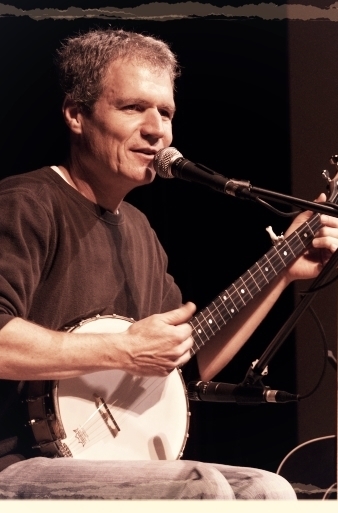 Since leaving a white-collar marketing job in 1992, Dave Ruch has been educating and entertaining full-time in schools, historical societies and museums, folk music and concert venues, libraries, and online via distance learning programs.
Since leaving a white-collar marketing job in 1992, Dave Ruch has been educating and entertaining full-time in schools, historical societies and museums, folk music and concert venues, libraries, and online via distance learning programs.
Along the way, he’s learned a great deal about supporting a family of four as a musician.
The Educate and Entertain blog provides articles, tips, encouragements, and how-to’s for regional performers (in any region) interested in making a great full-time living in the arts.


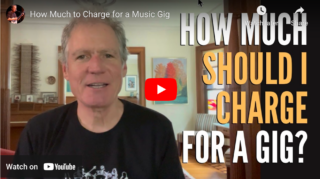
Pricing Strategies for Performers
“Music is the one incorporeal entrance into the higher world of knowledge which comprehends mankind but which mankind cannot comprehend. Lud.V.B.”
Ludwig van Beethoven
https://musicadvertisement.com/listing-category/admin-jobs/
https://customtwitchoverlays.store
https://customtwitchoverlays.store
Hey folks – I just published a new YouTube video on three approaches to pricing ourselves for gigs. You can find it right here: https://www.youtube.com/watch?v=1TY3au_1XqM
Hello Dave,
your blog is very informative. I’ve been performing as an independent artist for many years and needed to understand how to increase my value. Thanks for the insite.
Glad to hear this has been helpful, Tony.
Hello Dave… Just discovered your page while doing a search on “what to charge for travel time, fuel & lodging when booking a gig”. So far, I’m not (and don’t expect to be) disappointed… in fact, I’ve subscribed to your Marketing Tips offer, and hope to glean many more performer incites. Thanks for your articles.
My pleasure, Norm.
Well said as always Dave! That’s how I price my gigs…. by what I need to make to make it worth it to me. Sure there are some I miss out on but usually I’ve found those are the ones that weren’t a big loss anyway 😉
Very useful! I will try Chris’s formula when I am visioning 2021…
One thing that I consider both as a festival promoter and as a band member is that where you play affects where else you can play. For instance if you are playing for free pizza down the road from my event, I am reluctant to hire you for my national caliber festival because you have been giving it away in my geographic market. No matter how good you are, who are you going to draw that will pay $30-$90 to see you at my event when they can regularly see you for free at the pizza parlor? Remember, it is hard to shake the reputation of a $20 whore. If you are happy to be playing for free pizza as your recreation that is fine. However, if you want to make playing music an occupation or even a decent part time job, don’t give it away. Stay home a practice until you are worth what you want to be paid. When you are really ready to come out, playing a somewhat prestigious venue for less than you want as a “stepping stone gig” might make good long term business sense. Be careful though, I know of bands that continue to play “for exposure” for several years.
EXACTLY!!!
Hey Dave,
I’m a contortionist and perform music with my fiancé in our band Shadow in the Moon. I’ve recently had a near death experience & wanted to take this moment as a positive force to make performing as a career a priority. I stumbled across your site while researching tips for musicians. Your story about overcoming your injury & turning it into a positive is so inspiring & your articles are so helpful! We love ghost stories so I’m thinking of adding some haunted Ohio tales into our set. I’m grateful for your generosity, I can tell you deeply love what you do. Take care.
Sincerely,
Jess Bouffioux
Great to hear from you, Jess! I hope you’ll chime in and share your experiences on lots of the articles.
Hey Dave
I just found your page and this blog through a search on how to better engage an audience. I plan to spend a little more time reading through your articles because they all look like they could be useful in so many other aspects of live playing. And you write pretty well too 🙂
I am one half of an original acoustic guitar/fretless bass duo with my girlfriend and we are doing okay. Relatively speaking – we work most weekends in a predominately over saturated cover band market. We usually get what we ask for and part of it is something you said in this article, which is we ask for our price and stick to it. But I thought I’d add my two cents in on the other criteria of our pricing. We have two real motives for negotiating a price lower than what we want.
Do we really want to play in a place – in that case we will negotiate lower sometimes (within reason).
Is the place good for exposure or contacts or will it somehow move us forward – again sometimes we will negotiate lower depending.
Anyway that’s how we do it and it seems to work for us,
I hope you keep on inspiring people and offering helpful advice because we can all use both of those things from time to time.
Peace
Welcome Tim! Thanks for chiming in here.
Thanks for the advice
The live music market where I’m at has become flooded with a glut of musicians that either don’t need the money, because they have good day jobs, or they have a good retirement pension and 401K’s up the ying yang. The problem is that they are literally pushing the few pros who stuck it out in show business right out the door. Many of these cheap musicians are my friends and former band mates but I don’t want to make enemies of them, and lose what friends i have left. I just want them to please consider that if they don’t really need that much extra mad money, that at least they should consider asking for more money, and refusing to play unless they get it. What harm would it do them? It would benefit the profession quite a lot. Live music pay is in a downward spiral. The venues know they can get some cheap music to take your place, so they cut your pay. Some customers will squawk but in little time, you are simply replaced with some scab. They are not all great performers but some are pretty good musicians. Still it seems the venue owners have only one thing in mind, that’s more beanies for them, and if you get less, so what. It’s like we’re shooting ourselves in the foot in this business. I know I am shouting at the wind. I will just have to take myself to where the money is, I’m good, better than most, and my audiences know it. I hope those good money venues, and those that care more about quality over cheapness, are still out there though.
Hi Cataldo – I think you’ve inspired the next article I’m going to write. I have lots of ideas for keeping ourselves out of this trap that you describe so well.
If you’re better than most, my quick advice would be to price yourself accordingly and STICK TO IT. It may be a shock for some venues, and you probably won’t get the gigs right off the bat, but knowing your worth and sticking to it, in my experience, will get you out of this “race to the bottom.”
Hello! Thank you so much for all your writings on how to get gigs. I have taken extensive notes and it has helped my tremendously! I am learning to book for my four daughters and am wanting to send out info to churches to see if I can get them to do a Christmas show. How though do I go about asking for that? I introduce the girls but don’t know how to ask for them to be considered for any Christmas events. Is there a way to word this that doesn’t sound awkward? lol! Thank you so very much!
Hi Kathryn,
In what form are you getting the info to the churches – mail, email, or phone call?
Hi Kathryn-This is Bill “the juggler” from NJ. I used to market to churches, but no more. In my neck of the woods, it’s either very low pay or no pay at all. They often try to get you to work for peanuts or free, which is fine if you’re just getting started and looking to gain experience, build a resume, hone your craft, etc. No good if you’re trying to build a thriving, full-time career. Just my two cents. Maybe things are different in your area. Good luck!
Hello!
Wao I have to say Thanks and Congrats
As musician and accountant, this was the most crystal clear guide I have ever seen
Keep posting and helping other musicians to reach their goals!
Awesome blog! It certainly was a game changer the day I started confidently asking for weekend gig rates that compensated for my unpaid 40 hour work week (responding to emails mostly or rehearsing, costuming, listening to the birthday person’s favorite band to find a song to choreograph, marketing..) plus expenses but paying taxes at the end of the year still seemed ambitious so reinvesting in the business was not an option yet which I regret now that my permit & insurance has expired. I was always bad at math but not incapable. Back to the drawing board ~ Thanks!!
Sounds like you made an important leap with your pricing. Best of luck to you!
This is really great advice. I have a theater company for young audiences, and we also teach, and are starting to perform at birthday parties. Your article came up in a search for how to price. I love the paradigm shift in thinking.
Hey Lynne, thanks for checking in here to let me know!
Thanks! This advice has really helped. I didn’t know that there was an actual name for what I was experiencing “paranoia factor” haha. I can’t wait for they day when I am confident in my pricing and am able to feel like, “take it or leave it”! 🙂
Hi Dave: I’m going to echo the world here and thank you for this article. As a professional storyteller, I’m always on the hunt for the right charge for the right gig and the strategy for when to ask for more. I appreciate the rich ideas and will pass this link along!
Glad this was helpful for you Brendyn! You might also be interested in this recent article on price negotiating.
Thanks Dave. Solid Gold.
Good one! I never thought about it this way… Like, take a Year and divide… and yes, re-investment in what you do is a necessity. Upgrading the instrument, Or even just a new capo do make a difference
Thank you for this advice Dave. I’ve always struggled with the “Paranoia Factor” and it’s really kept me from seeking out gigs as I never knew what to ask and that fear of am I going to ask to much really kept me from seeking out gigs in the first place. This has really given me a great baseline to work from. Great article, great advice. Thanks!!
Really glad to hear that Brian, thanks.
Nice idea Dave! I think this applies to any career really. I am currently trying this with some gigs to see how it works, Thanks for the help.
Hi Jeremy – I hope you’ll check back in here and share your experiences once you’ve been in touch with some venues.
Great article Dave…and helps to further clarify the different scenarios when negotiating price. Even if turned down for holding to your quote, it seems like delivering value over time can certainly lead a future invitation at your quote.
Thanks Stu!
Thanks for this post, great info/advice. My musical partner and I are quickly approaching retirement age and want to get our now part-time music career up to the next level. All this info will help
Glad to hear it Doug. Good luck with it all!
Dave Ruch…you are terrific!!! Love your ideas.
Thanks Dave, that is so inspiring. Thank you for sharing this. Kind regards, Peter
Thanks Dave – have read a couple of your posts now and even after 46 years in “the biz” I can see I’ve missed a fair bit of stuff. Been too busy with my snout in the QY700 writing midi files obviously. Will stay tuned and look forward to your posts. Cheers.
Thanks for the good words Gary!
This is chock full of ideas. Thanks very much. I am going to study your suggestions over and over again until I have them down pat and used. I used to b e a classical pianist but now have switched to voice and guitar…folk music, which I love. Thanks very much for sharing your successful strategies.
Glad to help Jerrye – thanks for reading and sharing.
Great article Dave, it definitely shed some light and offered a bit of relief on what I should generally be charging as an independent artist.
Glad to hear that “E,” thanks!
Thanks and best wishes in your teaching and musical endeavors.Cheers.J.D.
Thanks JD!
I wonder how much difference there is between what a full time musician needs to make as opposed to a part timer like me who doesn’t actually depend on music money for support but only wants to make a few extra dollars giggling from time to time.
Thats a really interesting question that I would love to know the answer too. Great article btw.
Great article 🙂
Cheers Tim.
great article, thank you!
My pleasure Nancy, thanks for chiming in here…
I have little kids and took a break from working after my second was born for around a year and a half. Then I wanted to get back to it but I too couldn’t afford to work for the going rate so I started thinking about what I could do to add value, and started doing weddings with so where I do the ceremony and then do some crazy dancing and fiddling during the dancing, and I charge 6x the going rate, nobody charged like I do, but I still get hired, because I’m unique 🙂
Great story Ariella, thanks for sharing. There’s a lot to be said for not having any competition! You might also be interested in the article Educate Your Audience and Write Your Ticket, which has more ideas for separating yourself from everyone else.
Thanks, Dave! Pricing is a very important subject. I’m glad you provided some very useful and clear ideas on what musicians and entertainers are worth for their performances. I know you’ve opened my eyes about pricing. Thanks again.
Hi Robert – glad to hear it! Thanks for letting me know.